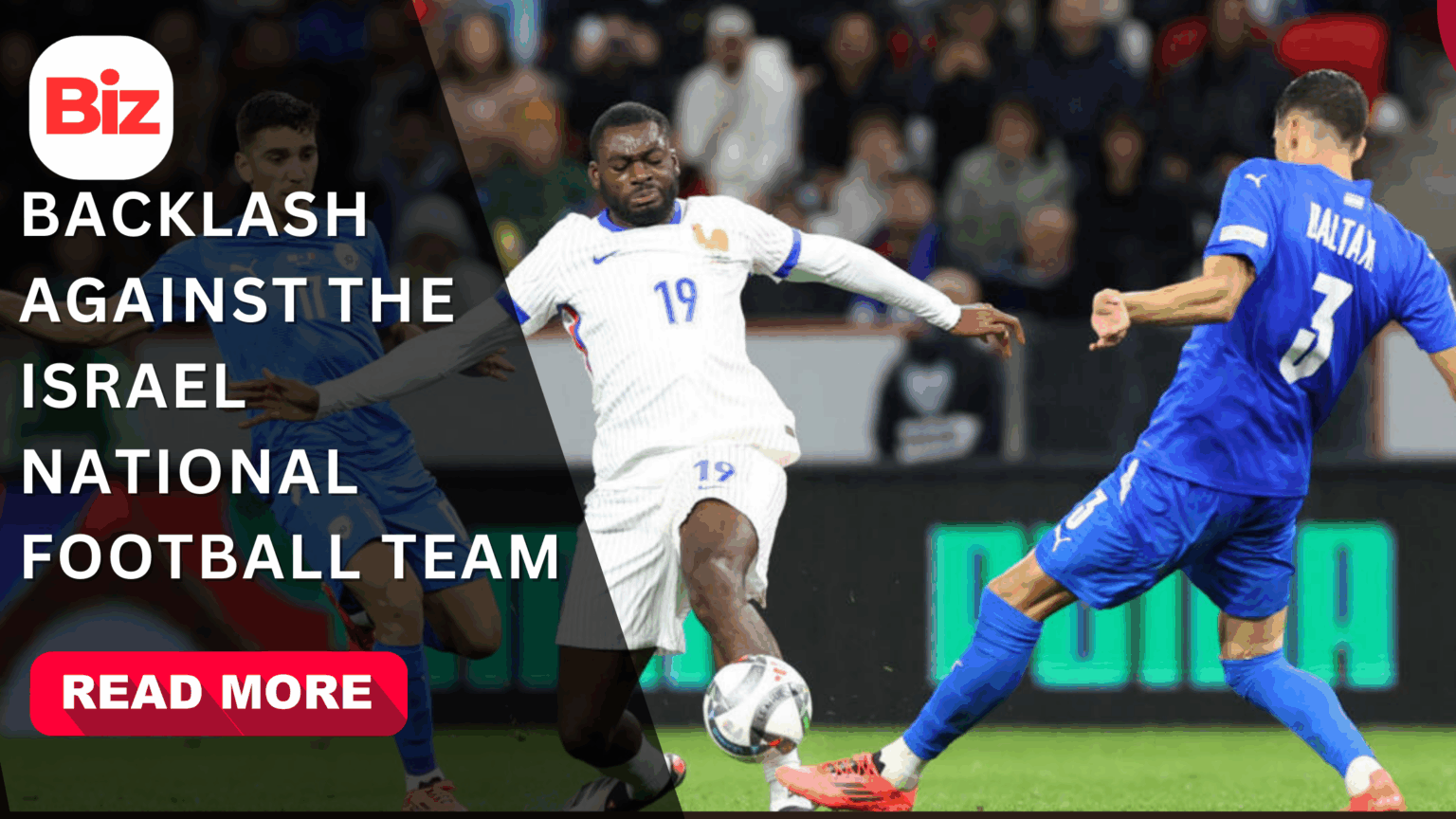The game of football is commonly referred to as the world game and it is a sport that knows no boundaries. However, with the Israel national football team, the field is not only about strategy and objectives but also a platform of political controversy, global examination and often controversy. The Israel football team is a victim of several forms of backlash over the past decades through protests and boycotts to geopolitical conflicts that are transferred into the stadium.
The History of a Brief History of the Israel National Football Team.
Israel national football team has got its own history in football in the world. Established in 1928 by the British Mandate of Palestine, it became a full-fledged FIFA member 1929 and eventually evolved to the footballing association of the State of Israel in 1948.
Having initially been a member of the Asian Football Confederation (AFC), the Israel football team was expelled in 1974 by political pressure on the part of Arab and Muslim countries who declined to play any football matches against Israel. This made the team homeless over the years.
At last, the Israel football team was welcomed into UEFA in 1994 and it is currently competing against the European countries in qualification campaigns and tournaments. As this provided Israel with a stable footballing name, it also put the team in one of the most competitive confederations worldwide.
The reason as to why the Israel Football Team has received backlash.
The national football team of Israel seems to be the zone of conflict between sport and politics. Some of the causes of the backlash it has received would include:
Political Conflict
The Israeli-Palestinian conflict that is still going on is the centre of the criticism. It is claimed by the opponents that international sport cannot be depersonalized, and Israel is committing human rights violations. Consequently, the Israeli football team has been facing numerous protests whenever it plays outside the country.
Boycotts and Protests
Numerous fans and teams have tried to boycott matches that involve Israel football team. The pro-Palestinian groups usually orchestrate protests outside the stadiums, and, in a few instances, matches had been canceled by players and federations.
International pressure on the players.
Even single members of Israel football team have fallen prey to it. Players occasionally receive aggression or even hostility in some countries when attending games, and opponents may fear the reaction of their domestic fans in case they are seen to be too friendly to Israeli athletes.
UEFA Integration
As much as joining UEFA gave the Israel national football team stability, they have also been subjected to some of the formidable teams in the world. This has been a competitive drawback and Israel has not succeeded in making it to major tournaments and this frustrates the home fans.
Backlash Incidents of High-Profiles.
Israel football team has over the years been the focus of a number of controversies:
- Protests at UEFA Qualifiers: Scots, Ireland and Spain have witnessed widespread protests pro Palestine with fans unfurling banners and chanting against Israel.
- Club Football Backlash: Israeli teams such as Maccabi Haifa and Beitar Jerusalem are also being targeted at European club matches, by the fans protesting boycotts or organising demonstrations.
- Cancellation of Friendlies: There are instances of cancelation of international friendlies against the Israel football squad by political pressure by the host countries or even activists.
These incidences are a confirmation of the fact that the Israel national football team is not only evaluated based on its performance on the field but also based on political movements in the world.
Striking a balance between Sport and Politics.
Opponents of the backlash believe that football ought to be a non-partisan arena, to which players can show no identification with politics. The proponents of this position feel that the Israel football team has the right to be treated just like any other national team, with performance and fair play being the main concern.
Conversely activists put forth the argument that sport is a political activity with sporting events like the Israel national football team being intrinsically tied to the activities of its government. Such a tension has remained the subject of dispute on whether Israel should be allowed to participate in competitions at the international level.
The Future of Israel Football Team.
the Israel national football team has two issues that require answering:
Can They Overcome Backlash?
Although demonstrations and boycotts might continue, the formation of solid relationships on an international level within the framework of UEFA might minimize political aloofness. On pitch achievements like the European championship or the world cup would also aid rewriting of stories on the squad.
Will Sport Continually Be Eclipsed by Politics?
Unless Israeli-Palestinian conflict is solved, it is probable that the Israel football team will keep receiving backlash. Nevertheless, football too can be used as a platform to bridge dialogue, cohesion, and passion despite differences.
Conclusion
The Israel national football team is a story of fighting political headwinds. Whereas in numerous countries football is a mere sporting activity, in case with the Israel football team, each game has an extra burden. Their reaction to it is the backlash: the protests, boycotts, or even cancellations they are the outcome of the complicated interaction between sport and politics in the contemporary world.
But, even therein, the Israel football team does not give up as it is not only representing the country but also the concept that even with division, sport can survive. It is yet to be seen whether football will continue to be an avenue to knowing in the future or another arena of political conflicts.
At this point it is becoming evident that whenever the Israel national football team appears on the field, they are playing more than a game they are entering the history and controversy and the hope that sport may still be able to bring a divided world together.
ALSO READ cristiano-ronaldo-real-madrid








